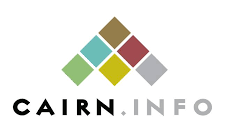Publication ethics
It is necessary to agree on standards of ethical behavior expected of all parties involved in the act of publication: the author, the journal editor, the peer reviewer, and the publisher.
Publication decisions
The co-editors-in-Chief of The Responsible Organization will be responsible for deciding which articles submitted to the journal will be published. The co-editors-in-Chief are guided by the policies of the Review and discussions with the members of the editorial board. Theyr are also constrained by applicable legal requirements regarding copyright infringement and plagiarism. The co-editors-in-Chief may consult members of the review’s scientific and editorial committees or reviewers in making this decision.
Fair treatment
Articles are selected solely on the basis of their intellectual or scientific content, regardless of the race, gender, sexual orientation, religious beliefs, nationality, academic affiliation, or political philosophy of the authors. The editorial board observes, in its decisions, the legal requirements regarding defamation, copyright infringement, AI or plagiarism. The procedure to be followed in order to submit an article to the journal is specified in a document published on the journal’s website and updated regularly. Any financial charges for publishing an article must be explicitly mentioned in this document.
Articles are selected based on the academic value they represent for readers and not on the commercial or political gain they might bring. The editorial board also ensures the independence of the journal from its publisher and its owner(s). If the journal publishes advertisements, these will be clearly distinguished from the journal’s scientific content.
Reviewers are selected for their intellectual and scientific expertise. They are responsible for evaluating manuscripts based solely on their content, regardless of race, gender, sexual orientation, religious beliefs, nationality, academic affiliation, or political philosophy. The opinions given by the reviewers must be objective. Reviewers are required to report all articles that show similarity to the article submitted to the journal. Reviewers should report any significant publications related to the article that have not yet been cited.
Confidentiality
The editor and editorial staff of The Responsible Organization will not disclose any information regarding a submitted manuscript to anyone other than the corresponding author, reviewers, potential reviewers, other editorial advisors, and the publisher, as appropriate. applicable.
Data presented in submitted papers may not be used prior to their possible publication, in the research work of an editorial board member or reviewer, without the author’s explicit written consent.
Disclosure and Conflicts of Interest
Unpublished materials disclosed in a submitted manuscript will not be used in research by an editorial board or editor without the written consent of the author.
Inside information or ideas obtained through peer review should be kept confidential and not used for personal gain. Reviewers should not consider manuscripts in which they have conflicts of interest resulting from competitive, collaborative, or other relationships or connections with the authors, companies, or institutions related to the articles.
Duties of reviewers
Contribution to editorial decisions
Peer review helps the editor make editorial decisions and, through editorial communications with the author, can also help the author improve the paper.
Speed
Any selected reviewer who feels incompetent to evaluate the research reported in a manuscript or knows that timely review will be impossible should inform the editor and recuse themselves from the review process.
Confidentiality
Any manuscript received for review should be treated as a confidential document. They should not be shown or discussed with others unless authorized by the editor.
Standards of objectivity
Reviews must be carried out objectively. The author's personal criticism is inappropriate. Reviewers should clearly express their opinions with supporting arguments.
Source recognition
Reviewers should identify relevant published work that has not been cited by the authors. Any statement, indicating that an observation, derivation or argument has been previously reported, should be accompanied by the relevant citation. A reviewer should also draw the editor's attention to any substantial similarities or overlaps between the manuscript under review and any other published material of which they have personal knowledge.







